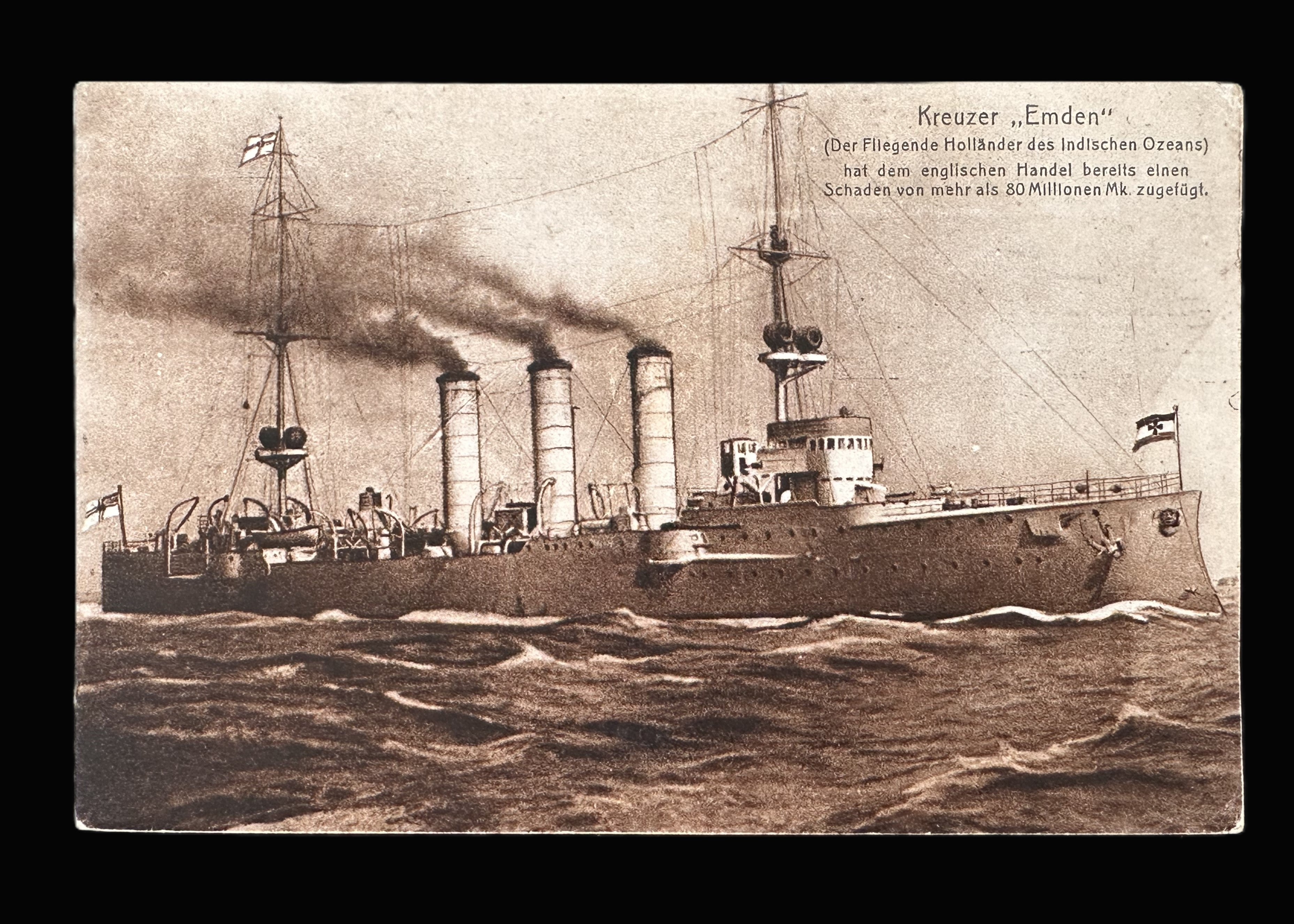The ocean stretched endlessly around the SMS Emden, its gray waves glinting under the winter sun. Far from the comforts of land, the men of the Imperial German Navy carved out their own traditions and rituals aboard these floating fortresses. At the heart of their daily lives was the act of dining—a ritual that connected them to home, forged bonds of camaraderie, and reminded them of the empire they served.
The ocean stretched endlessly around the SMS Emden, its gray waves glinting under the winter sun. Far from the comforts of land, the men of the Imperial German Navy carved out their own traditions and rituals aboard these floating fortresses. At the heart of their daily lives was the act of dining—a ritual that connected them to home, forged bonds of camaraderie, and reminded them of the empire they served.
The galley of the Emden was alive with activity. Beneath the rhythmic clang of machinery and the whistle of the sea, the cooks labored over coal-fired stoves, their hands chapped from the cold and their aprons streaked with flour and grease. The ship’s provisions—sacks of rye flour, slabs of salt pork, and barrels of sauerkraut—were stored in the belly of the vessel, carefully rationed to sustain the crew through their long deployment.
For the sailors, mealtime was a moment of respite. They lined up with their tin mess kits, bantering in thick dialects that revealed the diversity of their origins—Bavarians rubbing elbows with men from Prussia and Saxony. Their daily rations were humble: thick slices of black bread, pea soup ladled from steaming pots, and the occasional boiled potato. Coffee, brewed strong and dark, was a lifeline during early morning watches, while schnapps—a small but cherished ration—brought a flush of warmth to their cheeks.
A Sailor’s Meal
Seated in the mess hall, the men ate shoulder to shoulder, their laughter and chatter filling the space. Despite the monotony of the menu, the camaraderie of shared meals was a balm for the isolation of life at sea. “The bread’s harder than a cannonball, but at least it’s ours,” joked one sailor, biting into his crust with exaggerated effort. These moments of humor, no matter how small, helped break the tension of endless days spent patrolling foreign waters.
When holidays came, even the simplest meal became an occasion. On Christmas Eve, the ship’s officers arranged for a modest feast: smoked ham, tins of sardines, and biscuits saved for the occasion. The men gathered around a small Christmas tree, its branches festooned with makeshift decorations crafted from scraps of paper and tin. Singing “Stille Nacht,” their voices echoed across the ship, blending with the steady hum of the waves. One sailor wrote in his diary that night: “The tree is small, and the candles flicker in the wind, but for a moment, it feels like home.”
Dining with the Officers
Above decks, the officers’ mess offered a stark contrast to the sailors’ fare. Here, meals were served on fine china, the plates stamped with the crest of the Imperial Navy. Silver cutlery clinked against porcelain as stewards poured wine into crystal goblets, their movements precise and practiced.
The officer of the watch entered, his boots polished to a mirror shine, and took his place at the table. A hearty meal awaited him: steaming bowls of consommé, slices of roasted venison paired with lingonberry sauce, and a dessert of Apfelstrudel that glistened under the soft glow of the chandeliers. The officers exchanged toasts to Kaiser Wilhelm II and the empire, their voices steady despite the occasional shudder of the ship beneath their feet.
For them, the formality of these meals was not merely indulgence but a reminder of their station and duty. “The navy is the pride of Germany, and every toast we raise strengthens our resolve,” one officer noted in his journal, reflecting on a banquet held during a port visit to Qingdao, a German colony in China.
Challenges of the Sea
Despite the rituals and traditions, life aboard the Imperial Navy’s ships was far from glamorous. The constant motion of the sea made every task—from cooking to eating—a test of balance and endurance. Supplies spoiled quickly in the humid holds, and the monotony of rations weighed heavily on morale during long deployments. Hardtack, often riddled with weevils, became the subject of dark humor among the crew. “If you can crack it, you’ve earned your dinner,” went one common jest.
On voyages that stretched for months, resourcefulness was key. When the Emden’s supplies ran low during its infamous commerce raiding in the Indian Ocean, its crew relied on captured provisions to keep hunger at bay. One diary entry from a sailor recounts their relief at seizing a merchant ship laden with crates of fresh fruit: “We cheered louder for the apples than we did for the victory.”
The Legacy of Naval Dining
Today, the artifacts of naval life tell the story of these men and the ships they served on. A battered mess tin, its surface etched with the initials of a sailor long gone, speaks of countless meals eaten under the open sky. A gilded menu from a state banquet aboard the SMS Kaiser Wilhelm II offers a glimpse into the grandeur of the officer’s table. These relics remind us that even at sea, far from home, the act of dining was about more than sustenance—it was a way to stay human.
As you explore the legacy of the Imperial German Navy, let these stories and artifacts transport you to a time when the empire’s ambitions sailed on the backs of men who found solace in a shared meal, a simple toast, or a flickering candle on a storm-tossed ship.
Explore our collection of naval artifacts, from mess kits and officer’s silverware to menus from grand shipboard banquets. Each piece tells a story of life aboard the ships that carried the hopes and pride of the German Empire.


